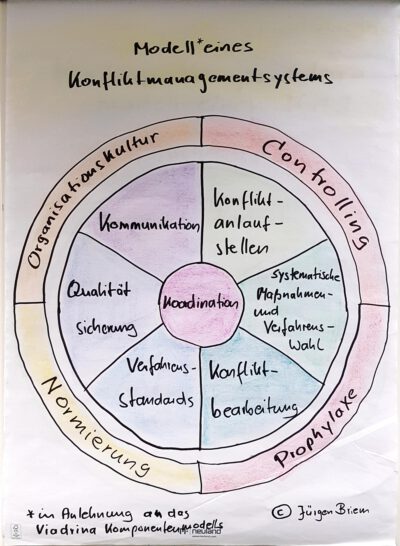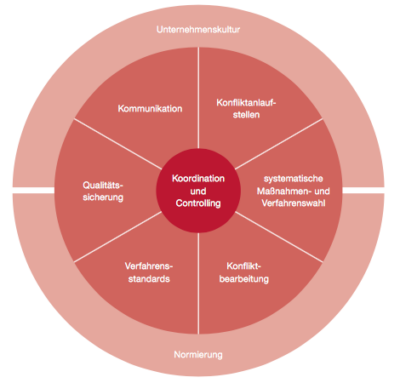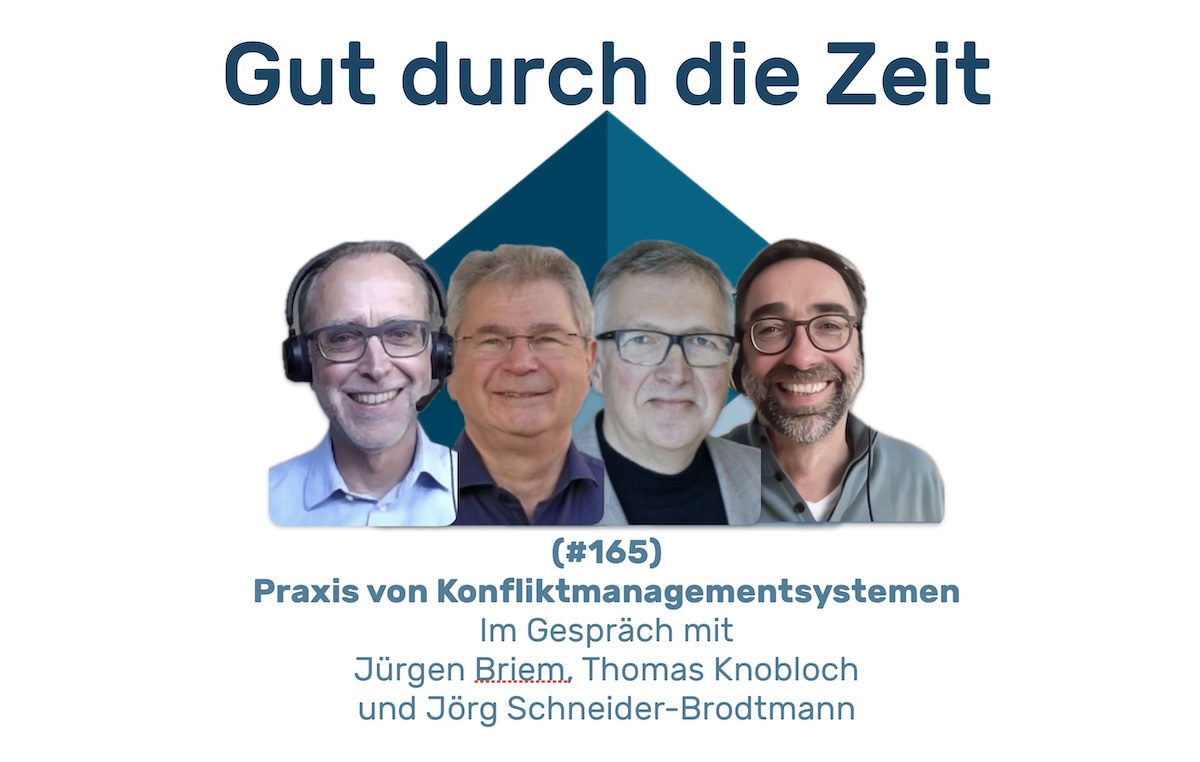INKOVEMA Podcast „Well through time“
#165 – Practice of conflict management systems
How can strategic conflict management be systematically developed in organisations? In conversation with Jürgen Briem, Thomas Knobloch and Jörg Schneider-Brodtmann
Well through time. The podcast about mediation, conflict coaching and organisational consulting.
Contents:
Guiding themes for this episode:
- Development of conflict management systems in companies over the past 10 years, after the underlying PWC studies had been completed and the Viadrina component model had been formulated.
- What has proved successful, what has not? Which components work well, which not so well?
- What are the implications of these developments for the future design of conflict management systems in companies?
- What do the developments surrounding risk management in companies and the questions and requirements relating to the sustainability of corporate actions, keyword: ESG, mean?
(ESG stands for environmental, social and governance and refers to the consideration of environmental, social and governance factors when analysing a company's sustainability efforts from a holistic perspective. This approach involves measuring various ESG metrics to assess a company's performance and sustainability).
Guests
Jürgen Briem
Business mediator, Mediator BM® Systemic coach Supervisor for mediators Initiator and co-founder of the "Round Table Mediation and Conflict Management of the German Economy"
Prof Dr Thomas Knobloch
is a tax consultant and business mediator certified by the German Federal Chamber of Tax Consultants at the South Westphalia University of Applied Sciences and specialises in risk and conflict management in teaching and research, in addition to accounting law. After studying business administration and working as a manager in the Mannesmann Group, he previously worked for several years as a university lecturer in accounting/controlling at the University of Paderborn in Meschede.
Jörg Schneider-Brodtmann
Lawyer at Menold Bezler in Stuttgart and certified mediator. WirtschaftsWoche 34/2019 described the negotiation expert as one of the most renowned lawyers for IT law (co-author of the IT law commentary published by Dr Otto Schmidt KG), who has been advocating the benefits of mediation for years, even in conflict-prone, complex contractual relationships.
 Modified
Modified Original
Original




Thank you very much for this insightful episode, which has kept me busy for some time afterwards. Above all, I wondered why conflict management systems are not welcomed with open arms at management level when their effectiveness has been proven and their application contributes to a considerable increase in effectiveness (perhaps you can link the study – I mean from PwC? – you can link to it?).
From my experience, I can report that conflict resolution, e.g. through mediation, is often shunted down to the „lower“ levels. People are also happy to send someone for coaching whose „impossible“ behaviour „is to be coached“ away, which on closer inspection turns out to be a helpless reaction to a demonstration of power by their manager.
In upper management circles, my perception is that it is often no longer the person with the better arguments who wins, but the one who presents them most eloquently (or loudest). Characteristics such as eloquence, charisma, a certain ruthlessness and also the desire to apportion blame have helped people to rise to this level, while empathy, a change of perspective and acting at eye level – characteristics that are conducive to a good conflict culture – are likely to have been more of a hindrance. At least at middle management level, I often encounter personalities with these qualities and, as a result, a high level of conflict competence.
It is therefore understandable to me that conflict management systems tend to be rejected by top management, because they would contribute to people having to question themselves and admit their own mistakes, perhaps showing personal weaknesses and in the end even contributing to the conflict with their behaviour (irony) instead of being able to pass it on to others, which would (perceivedly) weaken their own position.
Perhaps I am implying too strongly egotistically motivated motives here. However, I wanted to contribute this aspect because the topic of „the psychology of management“ has been on my mind for almost 20 years.
Thank you for your detailed contribution here, which provides interesting insights. Although I cannot confirm the tendency in the organisational mediations with which I am involved for conflicts to be pushed down to the lower levels, I do not want to rule it out in general.
In my opinion, the reason why a comprehensive conflict management system is not introduced so readily has to do with the fact that such an additional(!) management system would seriously disrupt the existing management systems (which have enough work to do). And routines are not that easy to change. The pressure would have to be enormous and of uniform origin for the solution for the decision-makers to be a KMS. But even if an organisation has to deal with conflicts on a massive scale, the origins would hardly be uniformly assessed. And there is still no proof that a KMS would be the solution. That's where the cat bites its own tail. And that's why it's initially about constructive conflict management using mediation in specific individual cases in which mediation can prove its worth (for the organisation!). Across the board. Permanently. …And then you can think differently about a KMS in the organisation. (We have also practically done it here with the The paradox of mediation on a large scale that is already evident on a small scale. ->https://inkovema.de/blog/paradoxien-der-mediation/)
Basic studies of the Viadrina University in co-operation with PwC
Thanks to the initiative of the Viadrina University Frankfurt in co-operation with PriceWaterhouseCoopers (PwC), German studies on conflicts in the world of work and their systematic handling have been published in sub-studies over a total of 10 years.
From the elements to the system, 2011
Conflict management as an instrument of value-orientated corporate management, 2013
Conflict management in the German economy - developments over a decade (2005 - 2015), 2016